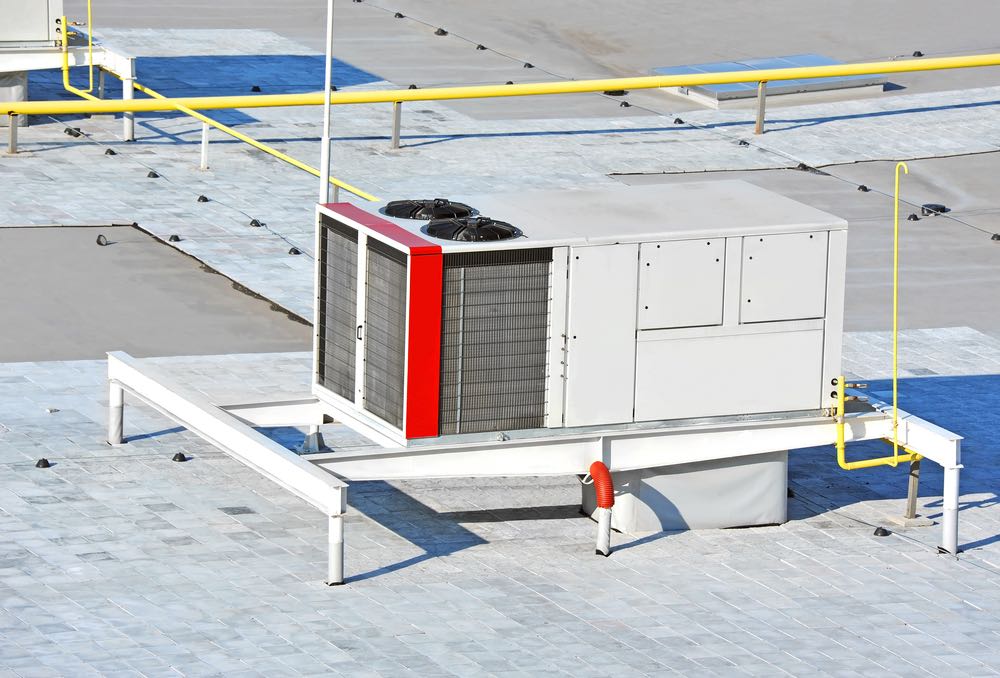
Ask Alliant Roofing Company’s owner Jeff Sitton about what makes a quality commercial roofing system, and he starts with a history lesson.
Let us step back a few years,
he starts. Fifty years ago, everything was hot mop (built-up roof), where heated asphalt was in a kettle on the ground. It had to be pumped up to the roof, where roofers then applied it over felt materials. The felt served to separate the deck from the roof’s exterior.
Liability was extensive, because hot tar is dangerous. There was asbestos in the roofing felt, and there was always a chance of fire. As a result, accidents were common, and insurance was expensive.
Hot tar roofing was the industry norm for decades, and it is still used in Western Washington, Idaho and Arizona. The majority of roofs applied by Alliant Roofing now are either TPO or PVC materials. The transition product between hot tar and today’s standard was EPDM, synthetic rubber membranes typically applied on low-pitch roofs.
We are doing more PVC all the time,
said Sitton. The installation process is similar to TPO, and it holds up better to chemical abuse than does TPO. Architects on new buildings typically specify which roofing material they want, but we also have supplier and manufacturer reference tools available to help customers make an informed decision. Our team is deep!
One big advantage of PVC or TPO membrane roofing, he says, is the reduced maintenance those systems require. In order to maintain the warranty, built-up tar roofs require re-coating every two years at an approximate cost of $5,000-$6,000.
So, what makes Alliant Roofing Company the best choice, when other commercial roofing contractors use similar roofing systems? The answer is simple: Craftsmanship.
PVC and TPO are great roof systems when installed correctly, and that is where Alliant Roofing stands out from other roofing companies. When the product is the same, the craftsmanship of the installation is the only difference between a quality commercial roofing system and a poorly done job.
It is a simple proposition — a roof protects the building and the people inside it. Building owners appreciate a good roofer. They should be able to take for granted that their roofing contractor knows what he is doing. Our customers can do that.
Alliant Roofing uses industry best practices that inspire confidence in its customers. We start by hot welding seams of single-ply roofing sections. Then, we probe all seams looking for cold welds, a crucial quality inspection step in the roofing installation process. SRC also uses walk pads to protect TPO and PVC materials from wear and tear in high-traffic areas.
As Sitton says, Quality control has to be superb, or you cannot compete in the commercial roofing industry. If you do not do it right the first time, you will be chasing leaks forever. It is hard to find them, especially in the winter. It is 100% true that if it is not installed correctly, your commercial roof will be your enemy. If a contractor does not have systems in place that foster pride in workmanship, that is not the roofer for you. Everyone at Alliant Roofing Company is committed to giving customers the best products at the best prices. Period.
Is Yours a Quality Commercial Roofing System?
Is your roof expensive to maintain, old or leaking? A quality roof is out of sight and mind. Call Alliant Roofing today at 1-833-228-8622 for a free price quotation on a professionally installed, quality commercial roofing system, comprising PVC or TPO single-ply, membrane roofing.
